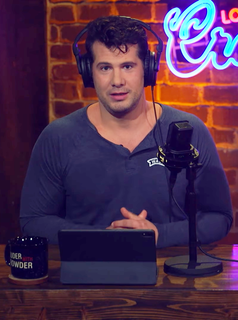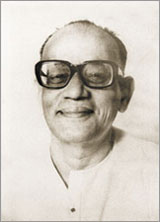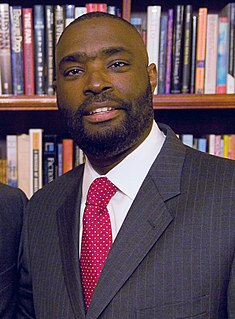A Quote by Tom Wolfe
Sherman made the terrible discovery that men make about their fathers sooner or later... that the man before him was not an aging father but a boy, a boy much like himself, a boy who grew up and had a child of his own and, as best he could, out of a sense of duty and, perhaps love, adopted a role called Being a Father so that his child would have something mythical and infinitely important: a Protector, who would keep a lid on all the chaotic and catastrophic possibilities of life. ~Tom Wolfe
Quote Topics
About
Adopted
Aging
Before
Being
Being A Father
Best
Boy
Catastrophic
Chaotic
Child
Could
Discovery
Duty
Father
Fathers
Grew
Grew Up
Had
He Man
Him
Himself
His
Important
Infinitely
Keep
Later
Lid
Life
Like
Love
Made
Make
Man
Men
Much
Mythical
Out
Own
Perhaps
Perhaps Love
Possibilities
Protector
Role
Sense
Something
Sooner
Sooner Or Later
Terrible
Tom
Up
Would
Related Quotes
When the father dies, he writes, the son becomes his own father and his own son. He looks at is son and sees himself in the face of the boy. He imagines what the boy sees when he looks at him and finds himself becoming his own father. Inexplicably, he is moved by this. It is not just the sight of the boy that moves him, not even the thought of standing inside his father, but what he sees in the boy of his own vanished past. It is a nostalgia for his own life that he feels, perhaps, a memory of his own boyhood as a son to his father.
Mother love has been much maligned. An over mothered boy may go through life expecting each new woman to love him the way his mother did. Her love may make any other love seem inadequate. But an unloved boy would be even more likely to idealize love. I don't think it's possible for a mother or father to love a child too much.
The Scoutmaster guides the boy in the spirit of an older brother... He has simply to be a boy-man, that is: (1) He must have the boy spirit in him: and must be able to place himself in the right plane with his boys as a first step. (2) He must realise the needs, outlooks and desires of the different ages of boy life. (3) He must deal with the individual boy rather than with the mass. (4) He then needs to promote a corporate spirit among his individuals to gain the best results.
Who will cry for the little boy, lost and all alone?
Who will cry for the little boy, abandoned without his own?
Who will cry for the little boy? He cried himself to sleep.
Who will cry for the little boy? He never had for keeps.
Who will cry for the little boy? He walked the burning sand.
Who will cry for the little boy? The boy inside the man.
Who will cry for the little boy? Who knows well hurt and pain.
Who will cry for the little boy? He died and died again.
Who will cry for the little boy? A good boy he tried to be.
Who will cry for the little boy, who cries inside of me?
A good father. A man with a head, a heart, and a soul. A man capable of listening, of leading and respecting a child, and not of drowning his own defects in him. Someone whom a child will not only love because he's his father, but will also admire for the person he is. Someone he would want to grow up to resemble.
'Master Harold' is about me as a little boy, and my father, who was an alcoholic. There's a thread running down the Fugard line of alcoholism. Thankfully I haven't passed it on to my child, a wonderful daughter who's stone-cold sober. But I had the tendency from my father, just as he had had it from his father.
She couldn't think of anyone else who remotely resembled him. He was complicated, almost contradictory in so many ways, yet simple, a strangely erotic combination. On the surface he was a country boy, home from war, and he probably saw himself in those terms. Yet there was so much more to him. Perhaps it was the poetry that made him different, or perhaps it was the values his father had instilled in him, growing up. Either way, he seemed to savor life more fully than others appeared to, and that was what had first attracted her to him.
Heat flushed Chauncey's neck; it took all his energy to curl his hands into two weak fists. He laughed at himself, but there was no humor. He had no idea how, but the boy was inflicting the nausea and weakness inside him. It would not lift until he took the oath. He would say what he had to, but he swore in his heart he would destroy the boy for this humiliation.
According to the legend an evil old doctor, who called himself God and us dogs, created the first boy in his adolescent image. The boy peopled the garden with male phantoms that rose from his ejaculations. This angered God, who was getting on in years. He decided it endangered his position as CREATOR. So he crept upon the boy and anaesthetized him and made Eve from his rib. Henceforth all creation of beings would process through female channels. But some of Adam's phantoms refused to let God near them under any pretext.
































